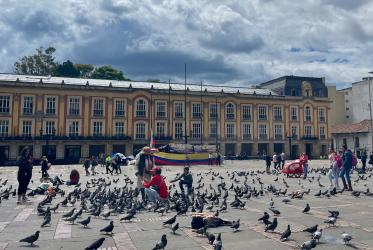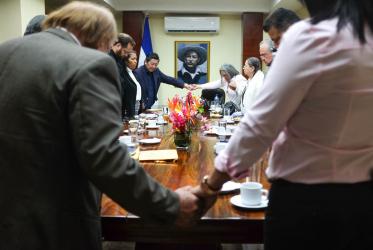Displaying 1 - 19 of 19
In Argentina, stirring journey for human rights continues
01 September 2017
"We have our work cut out for us"
10 August 2017
Magali Cunha joins Brazil’s National Truth Commission
28 March 2013
Brazilian youth advocate for peace in Palestine at WSF
12 December 2012












